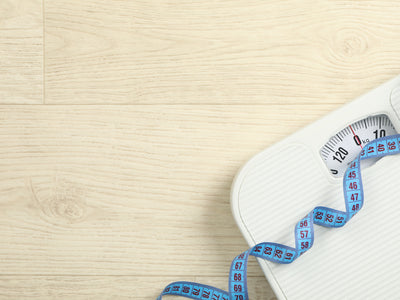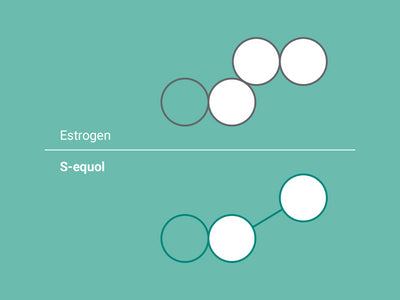
The 6 Game-Changing Nutrients For Your Changing Body
As women, we demand a ton from our bodies. So it should be no surprise we’re notoriously low in different nutrients at different points in our lives. During our reproductive years, we’re encouraged to fortify with folic acid and during our 50s and 60s, we’re encouraged to dive into key minerals such as calcium and magnesium.
Creating a supplement regimen around your menopause symptoms
To help you ensure your body is prepared to handle all of the changes that come with The Change, we’ve assembled a list of six of the most important nutrients and best supplements for menopause.
1. Calcium
Bone health is something women should always keep in mind—especially as our estrogen levels begin to dip. During post-menopause, your risk of developing osteoporosis dramatically increases, which is why calcium is one of the most vital post-menopause minerals. Making a habit of getting enough calcium early in menopause will help you ensure that you’re well positioned to take on the health risks that post-menopause brings. During menopause, you should be getting 1,000–1,200 mg of calcium daily.1 Good sources of calcium include low-fat dairy (milk, yogurt, and cheese) and certain kinds of beans. If you do not regularly consume calcium-rich foods, a calcium supplement will help bridge that nutrient gap.
2. Vitamin D
Vitamin D’s role in supporting bone health† makes it an especially important vitamin for women in menopause to take. Vitamin D also supports teeth, muscle, and immune health.† And because 75% of people are deficient in vitamin D2 it’s a good idea to consider a vitamin D supplement rather than solely relying on food and sun exposure.
3. Omega-3s
Omega-3s, commonly found in fish oil, are widely recognized for their importance in heart health. And because post-menopause brings an increased risk of heart disease, omega-3s are among the most important post-menopause supplements. Throughout menopause, it’s recommended that women take a fish oil supplement daily that contains 1,000–2,000 mg of EPA and DHA omega-3 fatty acids.2
4. Magnesium
Playing important support roles for your bone, muscle, and nerve health, magnesium is often listed among the best perimenopause minerals. While approximately 60% of the magnesium in your body resides in your bone structure, an important portion is also found in your bloodstream, where it helps support proper muscle contractions and nerve function.† Magnesium is also a key player in energy metabolism. In fact, it’s involved in over 300 metabolic reactions. It’s recommended that women 50 and older consume 320 mg of magnesium daily. Food sources of magnesium include leafy greens, nuts, beans, and whole grains (like brown rice, oat bran, and whole wheat). And magnesium supplements can also help you ensure that you’re providing your body with a regular supply.
5. Biotin
If you’re consistently looking for a lotion bottle, you may also find yourself searching for menopause dry skin supplements. And biotin might be exactly what your body needs. Many women report that biotin is helpful for managing dry skin, brittle nails, and hair loss. So if you’ve noticed that your hair brush fills up faster than it used to, you may want to consider giving biotin a try.
6. Vitamin B12
If you’re looking for vitamins for menopause fatigue, look no further. Anytime your body is deficient in B12, you’re likely to experience a lack of energy. And during menopause, many women report feeling sluggish or drained. Foods that are rich in B12 include seafood, eggs, and beef. And B12 or B-complex supplements can always help round out your B12 intake when you’re not able to get enough from food-based sources.
It’s important to remember that, although vitamins and supplements can be purchased over the counter, they can also interact with prescription medications, resulting in unintended side effects. Before adding a new vitamin or supplement to your regimen, it’s always a good idea to consult your doctor.
Resources
1US Institute of Medicine. Dietary Reference Intakes for Calcium and Vitamin D. Washington, DC: The National Academies Press. 2011. https://doi.org/10.17226/13050.
2Bayless K. Hearst Digital Media: Prevention. 10 Supplements You Should Be Taking After Menopause. Version current 18 December 2015. Internet: https://www.prevention.com/health/a20492228/post-menopause-supplements/ (accessed 16 November 2018).
3Park ML. Alive Publishing Group: Alive. Sail Through Menopause With a Little B and E. Version current 20 July 2017. Internet: https://www.alive.com/health/sail-through-menopause-with-a-little-b-and-e/ (accessed 16 November 2018).
†This statement has not been evaluated by the FDA. This product is not intended to diagnose, treat, cure or prevent any disease.


